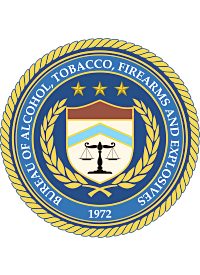
Robert E. Sanders, a former official of the Bureau of Alcohol, Tobacco, Firearms and Explosives (still known as ATF) for 24 years and now a board member of the National Rifle Association, complained that the ATF’s practice of issuing “private letter rulings” on what constitutes a “weapon” are not only confusing but often arbitrary and even contradictory.
The main reason is that the regulations under which the ATF operates aren’t defined and therefore are subject to interpretation and modification:
It is hard to tell what ATF wants you do to without submitting your product and asking for a letter ruling. You can’t tell what the agency has said in the past to others, because those letter rulings are generally secret. How could somebody know how to comply with the law?
Len Savage, the owner of Historic Arms in Georgia, found out the hard way about the ATF’s capriciousness, and it cost him $500,000. Savage is a firearms designer and manufacturer and was told by the ATF in July 2005 that he could convert machine guns legally owned by collectors into belt-fed weapons. After investing in the tools and machinery to make the conversions, he received another letter from the ATF in April 2006 saying that “upon reconsideration” it was rescinding its previous approval. Savage said the ATF “follows no rhyme or reason” calling it “enforcement by ambush.”
The ATF said it was just following the rules in its National Firearms Act Handbook, to wit: “classifications are subject to change if later determined to be erroneous or impacted by subsequent changes in the law or regulations.” Since those regulations are written by the ATF, their explanation is a canard: the ATF determines what is a weapon and what isn’t, and it can change its mind at any time.
Bill Atkins, a firearms inventor in Florida, had the same problem with the ATF. The agency initially approved his Atkins Accelerator (to increase the firing speed of semi-automatic rifles) and later changed its mind. After losing a lawsuit against the ATF, he is now sitting on $500,000 worth of useless inventory. He said: “An ATF letter opinion is worthless. It is not law, and it can be changed at the whim of a bureaucrat.”
In an attempt to “fix” the problem, Rep. Phil Gingrey (R-Ga.) has offered his Fairness in Firearms Testing Act to require the ATF to be more forthright and transparent in its testing and in its rulings. If Gingrey knew more about the genesis of the ATF, he might instead offer legislation to abolish the ATF altogether.
In 1968, when the Gun Control Act was created and signed into law by President Johnson, the ATF assumed its current moniker and then, in 1972, it was established as a separate bureau within the Treasury Department. Following the September 11, 2001 attacks, the ATF was moved from the Treasury to the Department of Justice.
Over the years the ATF has suffered a seemingly endless series of criticisms and disasters. In December 2010 ATF Special Agent Vince Cefalu blew the whistle on “Project Gunrunner.” In May of 2008 another special agent, Bill Newell, was quoted that “90 percent-plus of the firearms recovered from … violent drug cartels are from a U.S source” which were allowed by the ATF as part of various stings, including “Fast and Furious,” “Too Hot to Handle,” and “Wide Receiver.”
Details on the Ruby Ridge Seige starting in June 1990 can be found here while details on the Waco Siege can be found here, but the genesis of the ATF’s morphing into a self-defined rogue agency begins with the Gun Control Act of 1968.
Signed into law on October 22, 1968, its genesis was the Nazi Weapons Act of 1938. The prime mover behind the bill was then-Senator Thomas Dodd (D-Conn.) who, according to Aaron Zelman and attorney Richard Stevens, extracted exact language from the German law and inserted it into the bill.
In his book, Gun Control: Gateway to Tyranny, Zelman noted:
We present the official German text of the Nazi Weapons Law and a side-by-side translation into English. Even more deadly [we present] a side-by-side, section-by-section comparison of the GCA ’68 with the Nazi Weapons Law. If you have this in your hands, no one can tell you that you’re imagining things.
The ATF is the spawn of the Gun Control Act of 1968 whereby Congress gave the ATF the power to decide exactly what kinds of firearms citizens can own. The current “concerns” some gun manufacturers are expressing about the ATF’s “private letter rulings” are precisely and predictably the result of that decision 44 years ago. Unless and until the Gun Control Act of 1968 is repealed, the ATF is defunded and its $1.1 billion annual budget eliminated and its 5,000 employees let go, this rogue agency will continue its deliberate policy of harassment until the ultimate goal is achieved: elimination of private gun ownership in the United States, just like in Germany in 1938.



